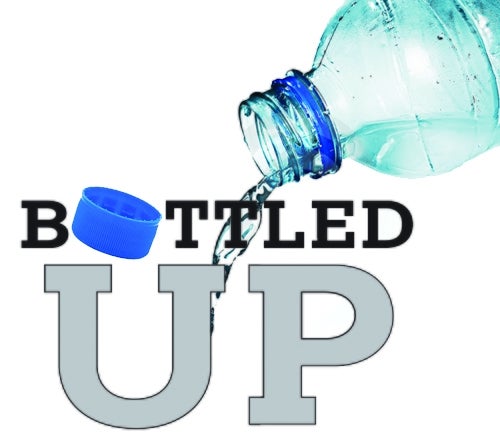To most Massachusetts residents, the Bottle Bill is simply a fact of life. Drink a soda, return the can for a nickel. Or hand it over to a Boy Scout troop or a homeless person in an effortless act of generosity.
But a new effort to extend the law to noncarbonated beverages like bottled water and energy drinks is reviving arguments from the early 1980s, when it was originally passed.
Environmental Concerns
Proponents say the revision would keep plastic out of the landfills and incinerators, keep roadsides cleaner while bringing in as much as $20 million in new state funds.
But some retailers and bottlers say that complying with the current law is already costly, cumbersome and not that effective in protecting the environment. And, opponents say, expanding the bill’s reach would only increase inefficiencies.
One argument for both the existing bottle law and its expansion is increased recycling. Janet S. Domenitz, executive director of the Massachusetts Public Interest Research Group, says that, while only about 30 percent of the state’s non-redeemable containers are recycled, 75 percent of redeemable ones are.
“It’s the most effective recycling program that exists in our state,” she said.
But Chris Crowley, executive vice president of Worcester’s Polar Beverages Inc. and president of the Massachusetts Beverage Association, says the bottle bill’s status as the “baby” of the environmental movement is thoroughly unjustified.
“Their baby in the crib is very ugly from an environmental standpoint,” he said.
Crowley argues that the logistics of redeeming bottles with a deposit are far too complicated. Customers must bring their bottles back to grocery stores. The stores must rent reverse vending machines or set aside sorting rooms. And distributors like Polar have to pick up and haul the bottles off for recycling.
“The carbon footprint to recover these resources is very high,” Crowley said.
He said the current redemption program covers less than two percent of the waste stream, and an expansion would budge that figure only slightly.
Crowley said municipal recycling programs are a much more efficient system, and initiatives like Worcester’s pay-as-you-throw trash collection system, which encourage curbside recycling, make much more sense than redeemable containers.
Beyond its environmental significance, one of the major arguments for the original Bottle Bill — and its expansion — is its value as a money-making device for Massachusetts. When cans aren’t returned, the extra nickels go to the state government.
State Sen. Jamie Eldridge, D-Acton, said the proposed expansion, which Gov. Deval Patrick has included as part of his plan for balancing the state budget, could generate $20 million. The money would fund other recycling efforts, including grants to help municipalities pay for their recycling costs, Eldridge said.
Different Times, Different Drinks
On both financial and environmental counts, Eldridge said, expanding the Bottle Bill simply makes sense because Massa-chusetts residents now quench their thirst differently than they did during the cola wars of the 1980s.
“What has happened in the past 10-plus years is that there’s more and more glass and plastic bottles that are the sports drinks, the juice drinks, the bottled water,” he said.
But to many retailers, a redemption charge is simply a 5-cent tax, and an inefficient tax at that. Crowley claims that the price to industry of collecting and recycling containers vastly outweighs the money that the state gets in unclaimed deposits.
Border Issues
Any sort of new state-specific cost tends to be particularly grating to those near border of New Hampshire, which has no bottle bill at all.
Darshan Patel, the owner of Ashburnham MarketPlace, a small grocery store, said many of his customers either buy their soda in bulk from club stores or head over the border.
A new deposit fee on water bottles and other drinks would probably dent his business more, he said.
“Always people try to buy in a cheaper and cheaper way,” Patel said.
If Patel’s customers are buying drinks in New Hampshire and redeeming the bottles in Massachusetts, that’s fraud.
And it’s not uncommon. Crowley said he knows of one case where a Central Massachusetts recycling hauler drove truckloads of bottles up to Maine, where noncarbonated beverage bottles have been redeemable since 1991, and made $1,900 every few weeks.
Hal Prince, director of Maine’s Division of Quality Assurance and Regulations, which administers the state’s redemption program, acknowledged that it’s vulnerable to fraud.
While the general redemption rate for the state is 85 to 90 percent, he said, the rate in towns along the New Hampshire border often approaches 100 percent, almost certainly reflecting people turning in bottles bought out of state.
Prince said the state is working to crack down on fraud, levying high fines and making examples of some large-scale offenders.
Ultimately, though, he said Maine is happy enough with its redemption system.
“We’ve been dealing with the expanded Bottle Bill for years and years right now,” he said.
“It’s kind of second nature to us.”

